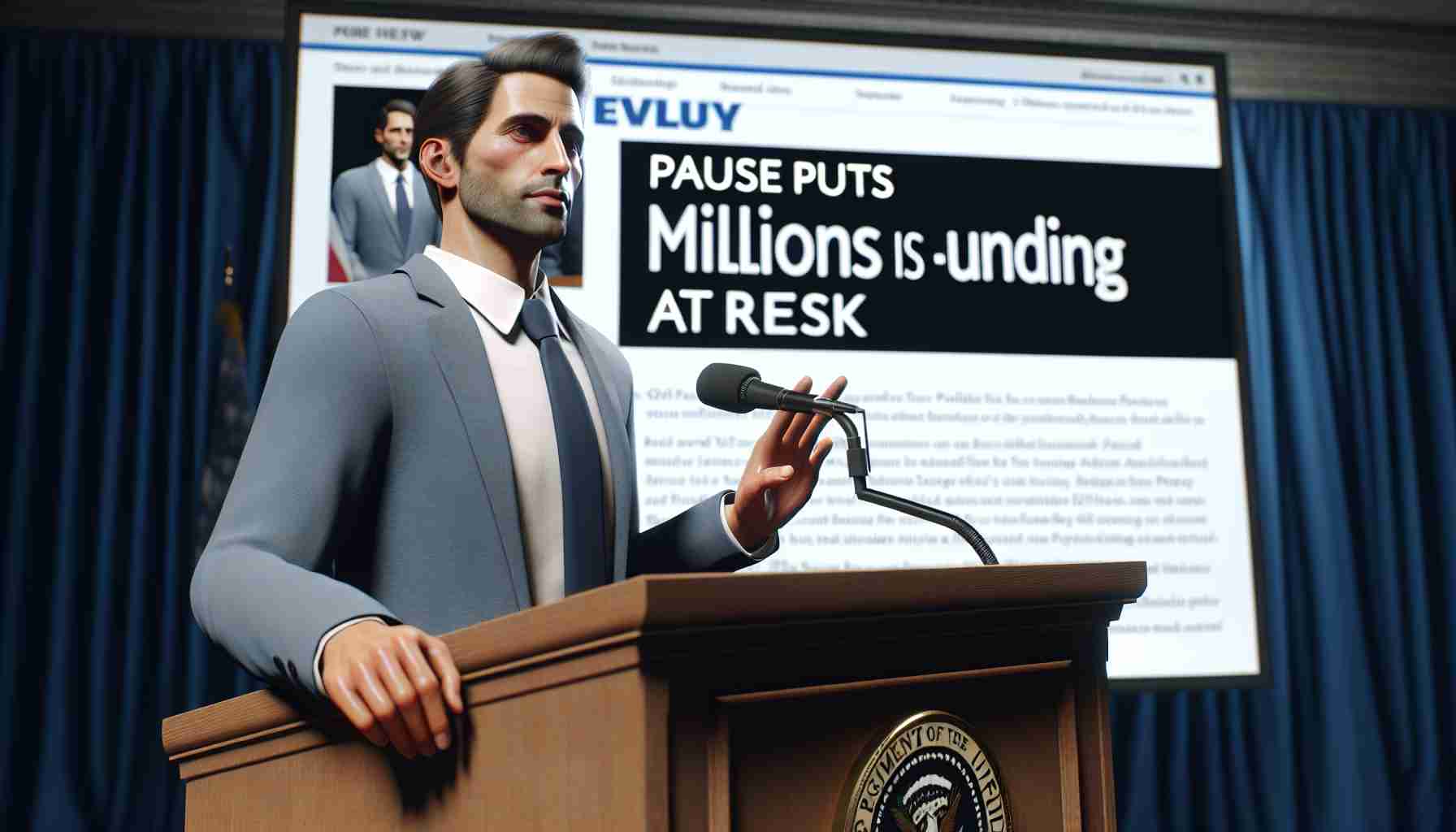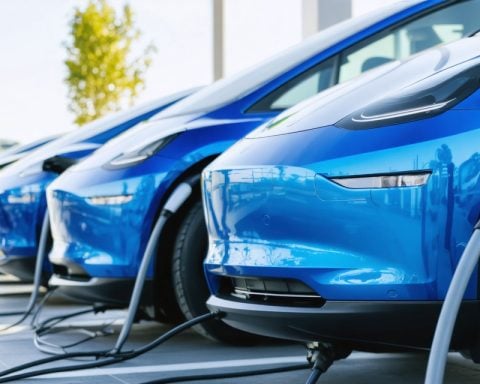The federal funding landscape for electric vehicle initiatives in Michigan has become uncertain. Recently, tens of millions of promised dollars for projects in Detroit and Grand Rapids are now in jeopardy after an executive order from former President Donald Trump mandated an immediate halt on payments linked to significant climate legislation from the previous administration.
This executive action is aimed at a variety of environmental programs, including electric vehicle charging infrastructure, which received backing from the Infrastructure Investment and Jobs Act. Michigan had seen a substantial influx of federal grants, totaling over $26 billion in investments, which now raises questions regarding their future availability.
Local officials are closely monitoring these developments. The Michigan Department of Transportation was slated to receive over $110 million specifically for deploying EV chargers, funding that has already been partially authorized for use. Despite engaging projects to enhance charging station availability across highways, clarity on whether these funds will be affected is lacking.
Cities like Detroit and Grand Rapids are also awaiting guidance on their respective funding awards to expand EV charging installations aimed at underserved communities. As stakeholders assess the implications of the executive order, the risk looms that these initiatives crucial for promoting electric vehicle adoption may face significant delays. Local leaders emphasize their commitment to continuing to build this necessary infrastructure regardless of the federal financial uncertainty.
The Future of Electric Vehicles: Navigating Uncertainty in Michigan
The recent turmoil in federal funding for electric vehicle (EV) initiatives in Michigan extends beyond budget sheets; it carries ramifications for social structure, environmental integrity, and the overarching global economy. As the EV market is pivoting towards sustainability, the suspension of anticipated federal support threatens to stymie progress in renewable energy investments and infrastructure.
Michigan, often celebrated as a cornerstone of America’s automotive industry, risked becoming a leader in the EV transition. The loss of over $110 million earmarked for charging stations could hinder not just local job creation but also deter the state’s efforts to contribute to a greener economy. The broader economic implications are profound; as Michigan pivots toward a post-carbon future, maintaining momentum in this sector becomes essential for remaining competitive on the global stage.
Moreover, the cultural shift towards sustainable living, particularly in urban areas like Detroit and Grand Rapids, hinges on accessible EV infrastructure to encourage adoption. These cities have a unique opportunity to bolster community engagement and drive equity in energy distribution by enhancing charging access in underserved neighborhoods. Failure to secure funding may exacerbate existing inequities, leaving marginalized communities behind in the clean transportation revolution.
As stakeholders advocate for continued investment, they must also prepare for potential shifts in global energy policies. The trend towards decentralized energy generation and grid resilience is undeniable—positions Michigan as a potential battleground for progressive climate action. The long-term significance of this situation cannot be overstated: reinforcing commitment to EV initiatives today could pave the way for a sustainable tomorrow.
Michigan’s Electric Vehicle Funding: What You Need to Know Amid Uncertainty
The Current Situation of Electric Vehicle Initiatives in Michigan
The federal funding landscape for electric vehicle (EV) initiatives in Michigan has become precarious due to recent changes in federal policy. An executive order from former President Donald Trump has mandated a freeze on payments associated with significant climate legislation, which could jeopardize a considerable amount of funding for electric vehicle infrastructure projects. As a result, millions of dollars promised for projects aimed at enhancing EV charging capabilities in cities like Detroit and Grand Rapids are now in question.
Funding Overview and Implications
Michigan had experienced a substantial influx of over $26 billion in federal grants aimed at various development initiatives, including electric vehicles. Among these are funds allocated specifically for EV charging infrastructure, with the Michigan Department of Transportation anticipating over $110 million designated for this purpose. However, clarity regarding the impact of the recent executive action on this funding is still lacking, leaving many local officials in a state of uncertainty.
Key Features of Michigan’s EV Charging Initiatives
1. Investment Scale: Michigan’s efforts to develop EV infrastructure are backed by significant federal investments, which are crucial for expanding charging station availability throughout the state.
2. Targeted Locations: The projects specifically focus on underserved communities, aiming to provide equitable access to EV charging options.
3. Infrastructure Investment and Jobs Act: This framework was expected to bolster the state’s EV initiatives significantly, enhancing both public and private sector engagement in the EV space.
Pros and Cons of Current Developments
Pros:
– Local Commitment: Despite federal funding uncertainty, local leaders emphasize their dedication to expanding EV infrastructure.
– Environmental Benefits: Investment in EV infrastructure can lead to lower emissions and improved air quality.
Cons:
– Federal Funding Instability: The recent freeze on federal payments raises concerns about the viability of ongoing and future projects.
– Delays in Implementation: Stakeholders fear that essential projects designed to promote EV adoption may be significantly postponed.
Local Insights and Future Predictions
Local officials are actively monitoring developments regarding federal funding. The expectation is that even if the current order remains in effect, local governments might pivot to alternative funding strategies or seek state-level support to maintain momentum in their EV initiatives.
As stakeholders assess the extended implications of the executive order, the hope remains that these initiatives will adapt and evolve to thrive in a shifting funding landscape. Predictions suggest that states may begin exploring innovative partnerships and funding mechanisms to ensure progress continues without federal assistance.
Conclusion
The uncertainty surrounding federal funding for electric vehicle initiatives in Michigan presents both challenges and opportunities. As local leaders remain committed to ensuring robust EV infrastructure, the way forward may depend on adaptability and collaboration between state agencies, local governments, and private sector partners, paving the way for a resilient EV future.
To stay updated on developments in Michigan’s electric vehicle landscape, visit Michigan.gov.













